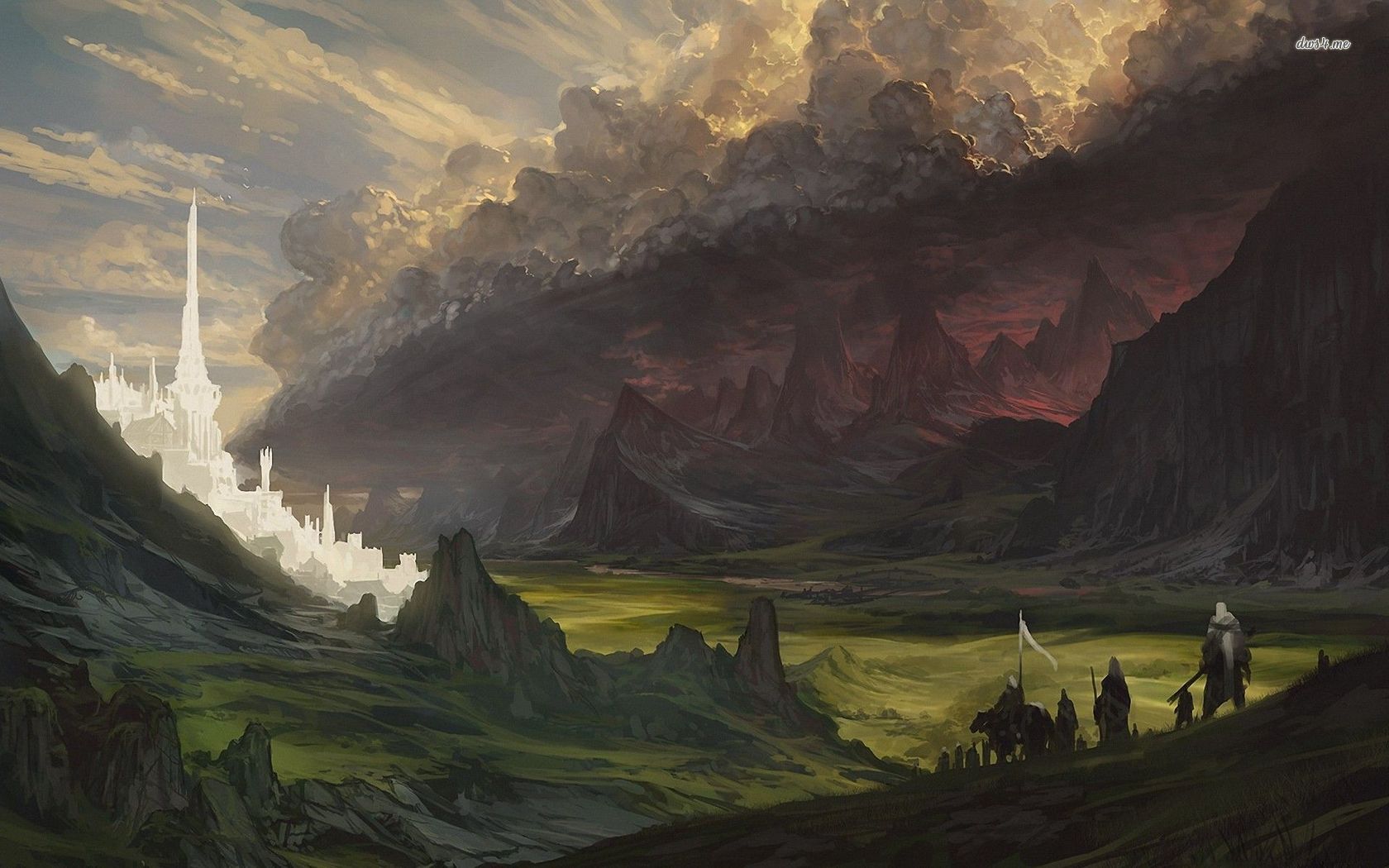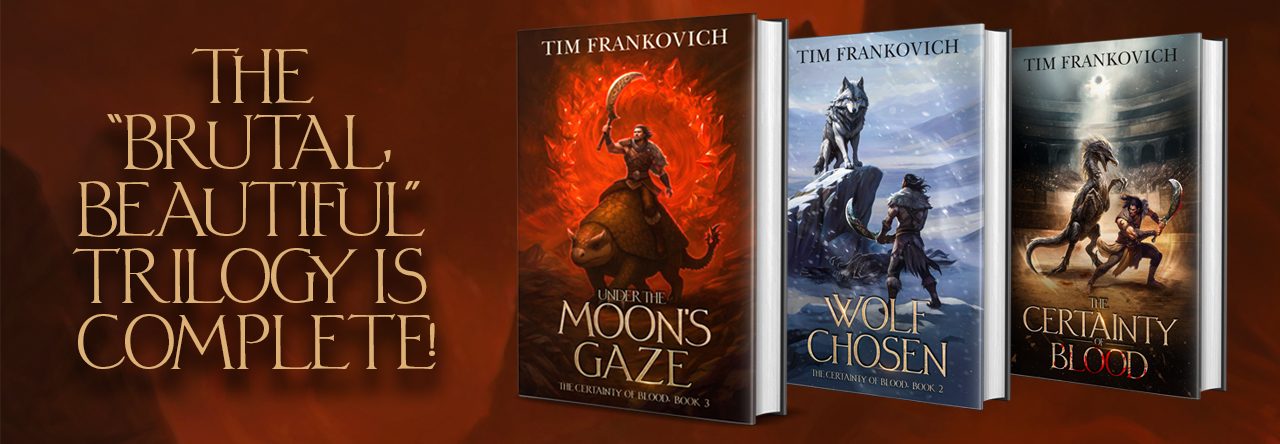 Around a year and a half ago, when I decided to get back into writing, I looked for some advice online. Guess what? The internet is full of advice about writing. In just a couple of days, I had 20+ websites bookmarked and kept finding more. I haven’t spent a lot of time looking for advice on other topics, but the sheer quantity of writing advice online is almost unbelievable. It seems that everyone and their cousin’s neighbor has something to say on the topic.
Around a year and a half ago, when I decided to get back into writing, I looked for some advice online. Guess what? The internet is full of advice about writing. In just a couple of days, I had 20+ websites bookmarked and kept finding more. I haven’t spent a lot of time looking for advice on other topics, but the sheer quantity of writing advice online is almost unbelievable. It seems that everyone and their cousin’s neighbor has something to say on the topic.
However, like anything in life, I soon discovered that you need to be careful about writing advice. Some of it is not necessarily beneficial. This applies to any topic, of course, but I found it especially true with regard to writing. Sometimes, that cousin’s neighbor doesn’t know what she’s talking about.
I’m not going to dispense my own writing advice, though I’ve thought about it. I don’t feel qualified. I’m mostly writing about my own experiences. And from time to time, I may throw out my own opinions about something I’ve read. But that’s all it is: my opinions. I have no great wealth of knowledge to give out… yet. Maybe someday I will.
You see, that’s one of the key things I discovered about the writing advice online. Some of it is written by people who have no business giving out advice. I’ve seen websites filled to overflowing with advice, and yet the writer of this advice has never published a single book. Others have even larger sites with even more advice, yet they’ve only self-published a couple of titles on Amazon. Then there’s some that have only written books (sometimes self-published) that are ABOUT writing, but they’ve never written anything else. Perplexing. The ones that make me really roll my eyes are the sites that look like they were designed in 1992 and never updated since. I saw one that said something about “this month’s focus is…” and the topic hasn’t changed since I discovered it.
My point is that we should use discernment in choosing where we get advice. Some people are doing this just to make money off of gullible wannabe authors. Some are doing it because they think they know more than they actually do.
Let’s use a ridiculous example. I work on a Mac computer. If I start having problems with it, where should I go for advice? Should I ask my neighbor, who almost never touches a computer, from what I’ve seen? Should I ask my friend who hates Macs and insists that Windows is far superior? Should I ask another friend who used to use Macs back in the 1990s, but now swears by Linux? Or should I ask a genius at the Apple Store? The answer should be obvious. Why listen to advice from people who don’t know what they’re talking about?
That’s where I come down. When I seek out advice, I want the best advice. Some choices are obvious, like Writer’s Digest, which has been a standard for all things writing for close to a century. Then there are legitimate best-selling writers who are willing to give out advice and share their experiences. No one can question Brandon Sanderson’s success, for example. He regularly teams up with a couple of other authors to produce a short podcast on writing topics. It’s been going on several years and is full of great advice. I’m a big fan of David Farland’s writing tips (he’s also a best-selling author), and James Scott Bell, who is extremely prolific, has also written some helpful books on writing.
Since publishing is an industry, sometimes advice can come from non-authors; it can come from those involved in the business side of it. Agents are a good source of advice on how to get noticed. Query Shark, run by an agent who gleefully rips writer queries to shreds and then shows how they can be better. It makes me laugh, but has definitely improved my query game. John Adamus is an editor/writing coach who has been in the business for decades. Besides his blog, and his paid services, he dispenses free advice on Twitter daily. Jane Friedman is an editor that has over 20 years of experience in the publishing industry and a website chock-full of brilliant tips. And so on.
Writing is an art. Publishing is a business. Seeking out advice on both sides of the issue is a good idea. Just make sure you’re getting advice from people who have your best interests in mind.
Category: Writing Page 15 of 17

I said that in my last post, but I thought I’d elaborate a little more.
Since I finished the first draft of the book, here’s some of what I’ve been up to:
- Adding in an important scene that I accidentally left out.
- Adjusting the timeline of different events as they happen from different points of view.
- Added a few comments to clarify certain side issues related to character development.
- Searched for filler words – that means searching out every single use of words like “that” or “just” and deleting most of them.
- Killing adverbs. Too often, in the hurry of writing, we tend to rely on words like “actually” or “really.” I needed to delete and/or rewrite a few hundred of those. That was probably the biggest job I’ve taken on so far.
- Checked for consistent capitalization of certain world-specific terms.
- Checked to see if I ever mentioned a certain supporting character’s appearance (I didn’t! Whoops!)
I haven’t even scratched the surface of the list of revisions that I know I need to make. That includes minutiae like determine the phases of the moon through the story’s progress and making sure any references to it make sense. Or enhancing descriptions of certain parts of the culture. Or adding in more foreshadowing for the events of the climax.
After I take care of ALL of those things, then I’ll start from the very beginning and re-read the entire thing, sentence-by-sentence, and revise everything. Yes, that’s a big deal.
I have two beta readers who are reading the rough draft, and I’m looking forward to their reactions. They’re very different from each other, so I expect different points of view, which is what I want to hear. Then I’ll make more changes based on their feedback.
Only after all of that will I seek out some more beta readers/critique partners to look over the revised draft.
Part of me hates this process. It’s an insane amount of work and a lot of it is downright mind-numbing. But another part of me loves it.
You see, I love this story and these characters. Therefore, I want it to be the best it can be. I want it to flow, to sweep the reader along, to make it into a real page-turner. Each and every sentence has to be just right. Each and every character’s words, raised eyebrows, gestures, frowns, has to be true to who they are. Each and every description has to be realistic and appropriate to the setting.
I tried to think of an analogy that would work here, but every one of them fell apart. I don’t think I have anything at all that works as a comparison for this editing/re-writing process. It’s an art form.
And it takes a while.
With a final three-word sentence a few minutes ago, I finished the first draft of my novel. Currently 137,093 words long (somewhere close to 500 pages), it’s an epic fantasy like I always dreamed I would write. Unlike all the experiments I attempted in my early life, this one is actually original, not attempting to copy anyone or anything.
It’s the story of a young man, cursed from birth for the sins of his father, faced with a legacy of magic and power that could free him from the curse… or kill him. And there are others who want him dead for other reasons. At the same time, a young woman, training to be her land’s greatest mage, discovers a secret that could unravel the very fabric of the world. (And that’s the first time I’ve tried to explain the book, so I know that needs work.)
Current working title: Until the Curses Are Lifted
It’s really my second novel. The first one, a YA fantasy written just over a year ago, was much shorter and less ambitious (almost half as long). I was unable to find an agent for it in its present form. I hope to return to it at some point and make it better.
For now, the real work begins on this novel. Revisions. In at least two chapters, I skipped over some extensive descriptions because I had a block and needed to get back into writing. I need to go back and fill those in. I also have two full pages of notes detailing revisions that I know need to be made. And that’s before I even go back and re-read it!
The most significant work is something I have to do before anyone else can look at it. This book has two point-of-view characters, protagonists, each in their own adventure that eventually connect. I wrote it scene-by-scene. Now I need to go back and re-arrange every scene to cut back-and-forth between them. Along the way, I’m sure I’ll see some other revisions that are needed.
I have one beta reader who needs to look at it next week. I’d like to get more revisions done before I hand it off to any others just yet.
How long will this take? Weeks or months, who knows?
And then begins the process of querying, pitching, and otherwise searching for a literary agent. It’s a lengthy process. This time, I think I’ll be entering it with more confidence than before.
For now, I think I’ll celebrate a little bit. It’s kind of a big deal.
This is the big question looming over me.
Since mid-January, I have written almost nothing on my novel. And I don’t really know why. Scrivener is always open on my computer. I have time. I know exactly what happens next. I’m at the climax, after all. But I’m not writing.
Part of it might come from doubts and fears, I’m sure. I’m realizing that I have a couple of problems in the story that need some serious revision. And that makes me worry that the whole thing is worthless. (It’s not.)
That leads to the second issue: revision work. I know that there will be literally months of revision work on this and it’s intimidating. Since NaNoWriMo, the web/Twitter world related to writing has been all about revisions and the more I read and think about it, the more intimidated I am. Part of me is worried about how much work I’ll have to do AFTER I finish my first draft.
So why is that stopping me?
I don’t know.
I have some kind of mental block here that I’m struggling to overcome. Today, I wrote a character’s full background story, so that’s something. And I wrote this blog post. But I haven’t written a word on the novel itself.
I know this needs to change. Maybe by posting this here, I’ll motivate and/or embarrass myself into finishing.
As 2017 began, I was deep into revising and editing one book. As 2017 ends, I am nearing the end of writing another book. A lot happened this year.
Last year, I wrote a YA fantasy novel. In January, I was revising and getting feedback from beta readers. Once I was satisfied with it, I began the querying process. In late February, I began sending out queries to dozens of literary agents.
By mid-April, it was beginning to be obvious that I did not have an instant bestseller. I lost track of how many rejections I got. Suffice to say, if an agent responded at all, it was with a rejection. Dozens of them. After some negotiation and interplay with a couple of agents on Twitter and via email, I finally, finally got a rejection that actually told me something. Multiple reasons could be found, but the primary one was that the market was still a little flooded with that particular sub-genre. For now, the best thing to do was to set it aside until a more opportune time.
That led to the next book. I had envisioned the YA novel as the first in a series, and I have rough outlines of at least two more novels. But to work on those when the first one isn’t going anywhere would be somewhat pointless. Instead, I began looking for my next unrelated novel.
I have numerous story ideas piled up here and there. Some of them are sketched out in notebooks, some on documents on my computer. Which one would be best, however?
After careful consideration, I settled on a concept that I’ve had written down (and mostly forgotten) since 1991. A friend and I brainstormed it one crazy college night. Needless to say, it needed some work. I started serious world-building in May.
With the start of summer, I began writing the new novel. The writing was slow and difficult most of the time. Bit by bit, it took shape.
Then Hurricane Harvey came along and derailed everything in everyone’s life.
By mid-October, I had hit 50,000 words, and I really needed motivation. Fortunately, NaNoWriMo came along. As I’ve written previously here, I wrote 50,012 words in November.
Since then, holidays and other factors have slowed me down again. I was hoping to be done by Christmas. Or New Year’s Day. Neither of those are happening. As of right now, the novel currently stands at over 120,000 words.
How much is left? If you had asked me in September, I would have said, the novel will be around 110,000 words. If you had asked me a month ago, I would have said it will be 130,000 or so. Now? I’m not sure. I’m entering the climax of the story, but there’s a lot left to tell. I’m thinking closer to 140,000.
I can finish this in January. I know it. Will I finish it in that time frame? I’m not 100% sure, but I’m confident that it will be done within the next few weeks.
Then I start revising. Then beta readers. Then more revising. And probably more revising. And then… then we’ll see if this novel can generate more interest than the last one in the publishing industry.
Welcome, 2018. This year, things will be… different.
Whew.
November is over, and with it, National Novel Writing Month. For the second year in a row, I took part and accomplished my goal. It wasn’t easy this time.
Last year, I was working on a YA fantasy novel that was very fast moving and action-packed. I could breeze through a lot of words extremely fast. I succeeded in getting 50,000 words done without too much difficulty, even though it was my first time.
This year, I’ve been working on a much more detailed, elaborate adult fantasy. It’s far more complex, both in world-building and plot. Even though I had much of it mapped out, it was still a lot harder this year to get words down. I actually started it many months ago, and the writing was going very slow.
But having a specific challenge, a target to aim at, makes a huge difference. Along with that comes accountability. By telling people what I was doing, here and on Twitter, I was holding myself to the challenge. If I didn’t make it, everyone would know.
At the halfway point, I didn’t think I was going to make 50,000. I consoled myself with the truth that I would still have accomplished a great deal, regardless of whether the final number matched that 50K or not.
And then things kind of took off. I should thank fellow writer Wayne Thomas Batson for his Facebook group and chat on “Blackened Keyboard Friday.” That really gave me the motivation to get a lot done on the day after Thanksgiving, and then push through to the end. I had to work really hard on the last two days of November, but it was worth it.
I finished November with 50,012 words written. Yay me!
The novel now stands at 110,762 words. Based on what’s left, I’m now expecting it to reach 135,000 or more. It’s hard to say. Here’s why:
This novel is really two stories in one. There are two main protagonists with separate stories that weave together eventually. For one of the protagonists, I am now well into the climax of the story. Her part probably has 10,000 more words, at most. For the other protagonist, I have longer to go. His story needs something else to tie in with the climax and I’m not 100% sure about it yet. Depending on how that works out, I could be done with his story in 20,000 words… or it might be a lot more. It’s very hard to determine right now.
So the story continues into December. I hope I can at least finish by Christmas, but I’m not even sure of that at this point.
These are the things I know:
- I will finish this novel.
- It’s turning out so much better than I thought it would be.
- I’ll be doing lots of editing in 2018.
Time to get back to it! A major supporting character is about to die, and it’s a scene I’ve had in my head for almost a year…
![]() This picture shows a magnetic hurricane tracking chart. One exactly like this used to hang in my grandparents’ home. Almost every time we were there, one or more of us would mess around with the little magnets on it. And invariably, we would make a dotted line leading directly to the Galveston/Houston area.
This picture shows a magnetic hurricane tracking chart. One exactly like this used to hang in my grandparents’ home. Almost every time we were there, one or more of us would mess around with the little magnets on it. And invariably, we would make a dotted line leading directly to the Galveston/Houston area.
(In my parents’ home, we used the paper tracking charts that the news stations printed every year. No magnets to play with.)
If you didn’t grow up on the Gulf Coast, this is probably completely foreign to you. But tracking hurricanes was something that happened every year. Sometimes, those little magnets were vitally important. Sometimes, there were many of them, showing multiple hurricanes and storms moving throughout the Atlantic basin.
It was normal. It was the way we lived.
Today, with the internet, we can pull up the charts and tracks from the National Hurricane Center at any moment. We can see it on our weather apps. We’ve upgraded a little bit.
But the hurricanes are the same. They show up and cause devastation.
Harvey derailed most of our plans around here. We were extremely fortunate to be one of the homes in our town that did not flood (7,700 did!). But it’s played havoc with everything else in our lives. My business has taken a huge hit and may not recover. Hundreds of our friends lost part or all of their homes. We’ve all become experts at tearing out sheet rock and insulation.
I had a goal on my current novel writing to reach 50,000 words by September 9th. That didn’t happen. It still hasn’t happened. Harvey arrived two weeks before that day and everything changed. We lost tons of sleep, from which we haven’t fully recovered. We hurried out in the aftermath to help our family, our friends, our neighbors. Our church ran a shelter, organized work crews, and a distribution center. We have/had dozens of people from other states show up to help out. Writing, and many other things, got pushed to the background.
Normalcy, such as it is, is slowly peeking over the edge of reality, asking if it can come back. I don’t know. It might, but I think it’ll be changed. You don’t go through something like this without changing.
I’ve written a few hundred words in the past week or so. Starting to get back into my story. I thought I knew what was happening.
And then my protagonist did something totally stupid and almost got himself killed. That wasn’t in the outline.
Neither was Harvey. Huh. Art imitates life.
The writing has continued to be slow over the past couple of weeks. But I’ve now set myself a specific goal for hitting the halfway mark of the book. I’ll let you know if I reach it. In the meantime, here’s another glimpse into the writing process:
A couple days ago, I was driving home from the grocery store. As is sometimes common, I was going through an upcoming scene in my head. In it, my female protagonist is introduced to a significant minor character. He bows to her, and as he comes back up, he says something that only she can hear. But what does he say? As I turned the last corner leading to my house, the line came to me: “You have a star in your eye.”
 I had no intention of taking things in that direction. The line just popped into my head. And immediately, I knew the significance of it.
I had no intention of taking things in that direction. The line just popped into my head. And immediately, I knew the significance of it.
That one line changed everything. I won’t go into too much detail, so as not to spoil the book’s storyline, but here are some generalities:
I had thought I understood the character arc for this particular protagonist. I thought it was a decent arc and storyline. But this one line changed all of it. I suddenly understood how she connected to an entire fantasy race in the story. I suddenly understood her connection to the magic system of this world. And I immediately realized the potential of where this could lead by the time of the book’s climax.
One line of dialogue. One comment from a minor character. And it changed that much.
That’s the way writing goes sometimes. It doesn’t matter how much I plan things out, how much I outline, or how much I map character arcs. Sometimes, something just pops into my head, I write it down, and everything changes.
Don’t get me wrong: it’s not a bad thing. It doesn’t frustrate me. On the contrary, it excites me. Writing sometimes seems just as much a process of discovery as it is creativity. When I stumble into one of those discoveries, like this one, I feel a surge of enthusiasm for the story. I want to get this scene down and see where it leads. I want to discover what comes next. Ideally, future readers will hit this point in the story and feel the same way: What comes next?
I have nothing much to say here right now.
Things have picked up a little bit on the writing front. I’m over 22,000 words on the current novel. Continuing to get sidetracked by world building, especially names.
Funny things happen when you’re working on a huge book with lots of characters.
I had a couple of plot holes that needed filling. Then I realized that one minor character would fill those holes nicely. Then I realized that he would also provide a major turning point to the antagonist. Then I realized he wasn’t such a minor character any more.
I created another minor character just to have someone for one of the protagonists to talk with in a particular scene. Then I realized that I really, really liked this guy. And now he’s not so minor any more, either.
I have an outline of the big story, of course, but there is plenty of room for changes. Some writers follow a strict outline and some write from “the seat of their pants.” I’m somewhere in between. I like to know where the story is going, but I also enjoy being surprised.
I’m reminded of something J.R.R. Tolkien wrote in a letter, while he was hard at work on The Lord of the Rings:
“A new character has come on the scene (I am sure I did not invent him, I did not even want him, though I like him, but there he came walking into the woods of Ithilien): Faramir, the brother of Boromir…”
And we know where that part of the story went…

The new novel is coming along very slowly. I’m possibly around 11% through. This is proving to be far more difficult writing than the last one, and the main reason is worldbuilding.
For those unfamiliar with the concept, when crafting a fantasy or science fiction novel, a writer has to become, in J.R.R. Tolkien’s terminology, a sub-creator. It means making up everything about a world – culture, language, technology, development, religions, social classes, and so on. It means crafting enough of this new locale to be reasonably believable to the reader. (To be honest, many other genres do the same thing, such as novels set in an imaginary small town Americana, etc.)
Sometimes, a writer will skimp on some details while elaborating lengthily about others. For example, I was reading Patrick Rothfuss the other day and noticed that he almost never goes into any detail on describing clothing (Kvothe “put on his pants and shirt” is about it). Yet he goes into enormous detail describing the gesture-language of one group of people. Stephen Lawhead writes for great lengths about food.
The lengthy parts aren’t always necessary for a reader to enjoy the story. Sometimes, they’re an integral part of the story itself, but that’s actually kind of rare. More often, they simply add flavor, providing more “realism” to a location with which the reader is not familiar.
The problem is finding that balance. How elaborate do I get? How much can I skip over? Does the reader need to know the current clothing fashions in Arazu? What about the architecture of the city walls in Kuktarma? Or the details of language structure in Rasna? (These are all locations in my current work-in-progress.)

(No, I’m not getting THIS detailed… but I am reading things like this to learn more…)
Some things have to be there, no matter what. Since I’ve made the choice of having six distinct countries within this story, they have to be different from one another in more than just the location on the map. Characters from different countries have to have names that work with that country’s language/naming style.
I’m letting this kind of thing slow me down way too much. Yesterday, I stopped writing because I realized it was time to introduce two new characters and I hadn’t decided on names for them yet. I then had to decide which country they came from and try to work out their names. By the time I finished all that, I didn’t really want to keep writing any more. It was too much work. I found myself asking things like “Do I really need two characters here? Can I get away with just one? What if his name is just Bob?”
In some instances, I’ve done something that I should be doing more often: thrown in a placeholder name and kept going. “Find and Replace” is such a beautiful thing.
I’m writing this blog post primarily to motivate myself in this way. I need to get back to letting the words flow freely without stopping to obsess over worldbuilding. I can always go back and add that later.
I’ve really fallen in love with these characters and can’t wait for readers to meet them. But those characters live in a specific world and that world needs shaping.
